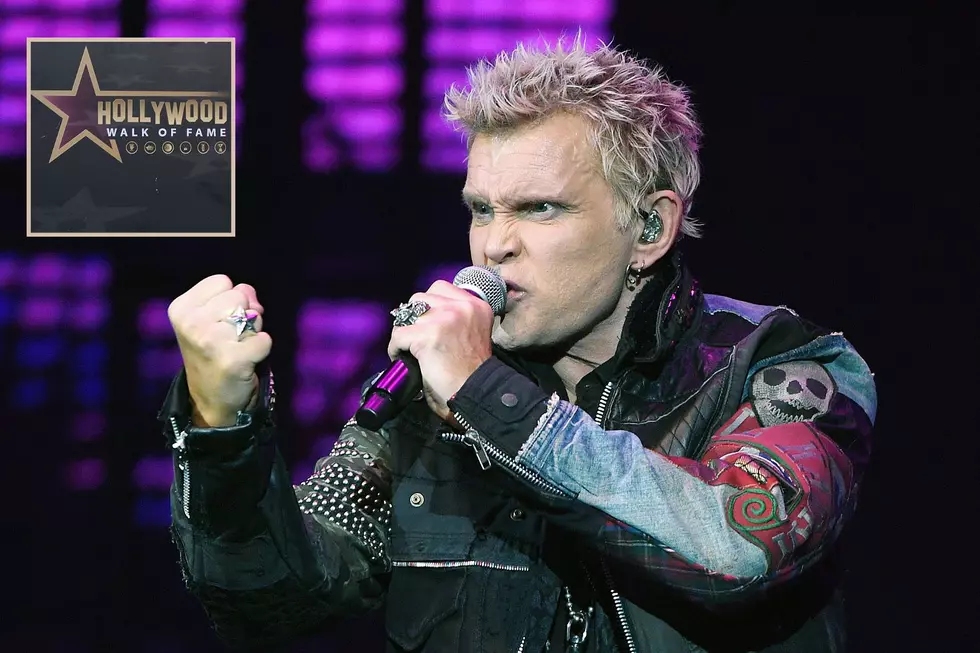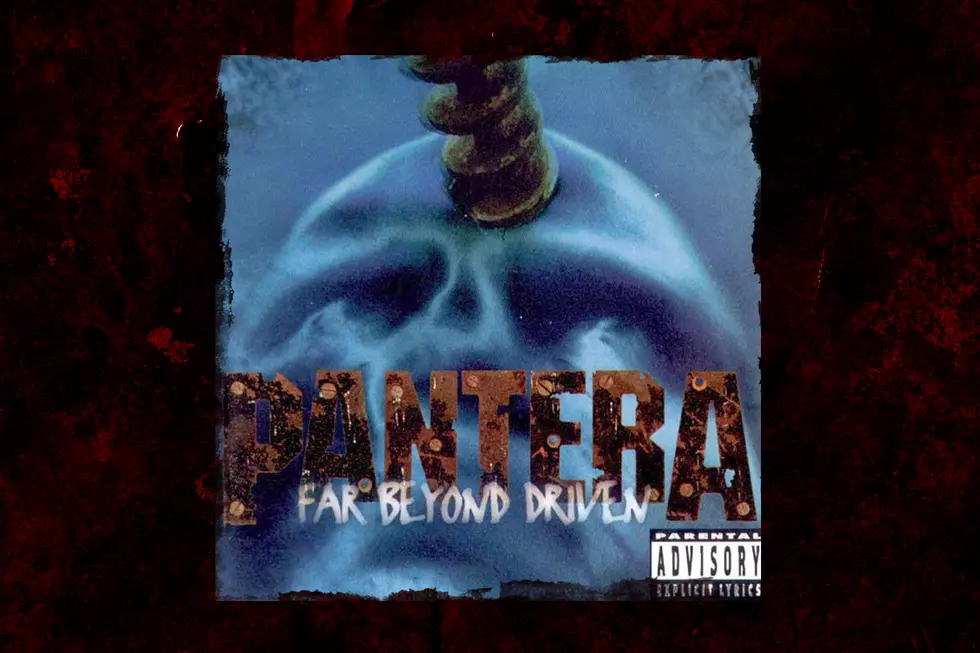
Henry Rollins on Vinyl, War and What You Should Be Listening To
Henry Rollins has been on the front lines of independent music and art since joining Black Flag in 1981. He's an author, spoken word performer, actor, radio host, traveler and vocal advocate for his beliefs -- all of which makes him an exceptional subject for an interview. Always on the move, Rollins took a few minutes from the road to answer a few questions for us.
Why do you think we're seeing a vinyl revival? We're not talking about picking up out-of-print LPs here, but paying 20 bucks for a new release that costs half that as a download.
Vinyl sounds better than any digital source by a wide margin. It’s also very expensive to press records these days. Everything from materials to the fact that there are not as many places to press. So, often, it’s going to cost you some.
Your record collection is legendary. We know it's hard to pick a prettiest child, but what are some of the key discs in your stacks, the "I don't care if the house is on fire, I have to rescue these" list?
I have given that some thought. Some records I have are probably rare -- test pressings, acetates, things like that -- but the ones that mean the most are the ones that have sentimental value.
For instance, at one point, I asked Ian MacKaye if he had a second pressing of the first Minor Threat record. I had all the different pressings but that one. Since they all had different colors, I wanted one of each. I am that kind of pain in the neck. He said he would look. I saw him later that year and he gave me a copy of the second pressing. He told me to be careful with it, it was the copy he had given to his mother. She passed away many years ago. I grew up in that house and was very close to her. What’s that particular record worth to me? A run through burning house definitely.
So, it’s records like that which have the most meaning. When I was a teenager, Ian bought me a copy of the first Buzzcocks album for my birthday. I still have it. That would be another. Otherwise, many of them are valuable in a monetary or scarcity sense but not as emotionally as others and those are the ones of most value to me.
Listeners of your radio show know that you have diverse musical tastes. For example, one recent show featured the Meat Puppets, the Rolling Stones, J. Mascis, Funkadelic, and Sun Ra. Do you worry that on-demand programming restricts listeners from that kind of diverse musical experience?
I would like to think that people, especially young people, would remain open-eared, if you will. That they would leave room for all kinds of music. That’s one of the great gifts of music -- you can listen to a ton of it and still be ready for ten tons more.
I think those who rarify their listening so drastically that they are unable to genre and period hop are missing out on a lot of enjoyment. I think it’s too bad that someone could be so purist into, let’s say punk rock, that they would never want to hear Dial or Savoy era Charlie Parker. What a loss. This is the precise reason my show is the way it is. I am trying to turn a lot of lights on.
It seems that with a few exceptions the traditional music industry has sort of collapsed into something resembling the DIY ethos of the '70s and '80s. Bands are out on the road finding their audiences, on social media talking directly to their fans, publishing their own music. Do you see any parallels between the post-internet music industry and the "traditional" indie music industry?
Yes. We were right all along. We were right and eventually, it made the majors deflate to a great degree. Now bands often connect with their audience in a very real and meaningful way. I think it’s improving music.
Do you think musically we're better off with the post-internet music industry? On one hand indie bands can record on the cheap, put their music online, and find their audience. On the other hand, who's going to pay for the next 'Houses of the Holy'?
'Houses of the Holy' I bet was done relatively cheaply. The only thing that would have been expensive would have been the trappings. The real making of the album, I bet it wasn’t a big deal. A band that good, all you need to do is mic it up and roll tape.
That’s how. You record really good bands that don’t need to be pitch corrected and have a machine recut the drums for radio. Who makes great sounding records cheap? Thee Oh Sees, Marnie Stern, J. Mascis, Ty Segall, Total Control, the Evens, White Fence, Jack Name, and on and on.
Expensive records are usually made by bands who can’t play or bands who think they need a lot of money spent to achieve some kind of perceived altitude. The real thing is direct and done.
That's a great segue into our next question: What else are you listening to these days?
Also, Sunn 0))), Boris, Lamps, the Intelligence, VUM, High On Fire, OM, Lorelle Meets the Obsolete, Wolf Eyes, Alicja Pop, Ex-Cult, Ausmuteants, Dick Diver, Eastlink, Trin Tran, Blasted Canyons, Ashtray Navigations, Midwich, Steven R Smith, Clarinette, Uton, Pontiak, Black Pus, the Anti-Job, Savages, to name a few.
It's hard to talk to you and stick solely to music. Travel is a huge part of your life, and we're back to bombing a part of the world where you've spent some time. A year ago in a different context you said, regarding Syria, that "a limited strike to me, is the equivalent of being a little pregnant." Well, here we are slightly knocked up. What are your thoughts on our most recent Middle East action?
I think that it’s the operating system put in place by Churchill, Truman, Eisenhower, the disintegration of the Ottoman Empire, the invention of Iraq, Israel, etc. It’s bigger than any president and it’s powered by the biggest possible players and money. Of course we’re back in these places and some new ones too. This is what we do. It won’t change.
You want to stop beheadings? You’ll need about a century and total cooperation administration to administration. Get military bases and posture out of these regions, get off oil. Won’t happen any time soon. Beating up on ISIS will make more groups. What the president will be dealing with until the end of his term and what the next president will be dealing with will insure that we will be having this conversation 10 years from now.
Peace is not in the equation. It never was. Not from Operation Ajax to 9/11, to now or in the foreseeable future. What are you going to do with men who cut other men’s heads off? Hug them? No. You have to kill them. And as you do, you will kill innocents and stir up more fury.
Watch the Errol Morris documentary on Donald Rumsfeld. Rumsfeld laughs and smiles through the whole thing. It’s him and people like him who architected all this.
You have your first lead role in this fall's 'He Never Died' playing a cannibal. What drew you to that project?
Great script. Hilarious. I am so happy I got to work in that film. I read the script and was drawn to the character. He’s very funny and so bored. I hope people check it out.
Are you resolute in your retirement from music? It has to be tough for a guy like you who spends so much time on-stage to hang up his cleats.
I gave what I could to the music I was involved with. It was in no way a remarkable contribution but it was real and done with everything I could throw at it. I simply don’t think lyrically any more. If I can’t write something new, then that’s it. I’m done.
I don’t want to go out on-stage and wheeze through old songs. It’s a repeat. It takes no courage to do that. I don’t understand resting on laurels. At all. If I did that, it would be artistic cowardice. Too safe. That’s just me. Whatever anyone else gets up to, that’s for them. Now and then, I see a band at an airport, waiting for a flight. I don’t miss it. I went for it really hard and when I was done, I was done.
I don’t mind digging the past, like an old record or a book on President Lincoln, but I don’t want to live in the past, especially mine. I am only interested in what’s happening now and what’s happening next. Life’s short, I got a lot to do.
Between your spoken word performances, writing, traveling, acting, advocacy, you may have inherited the great James Brown's crown as the hardest working man in show business. Ever get the urge to slow down?
Slowing down would be confusing and depressing for me at this point. It’s like laughing to keep from crying. If I slowed down, I don’t think I could deal with the stillness. I am conditioned to go. I am not tough nor strong, mostly angry and curious. That’s what gets me on the trail and down it.
More From Classic Rock 105.1




![Free Beer And Hot Wings Interview Henry Rollins [FBHW]](http://townsquare.media/site/43/files/2013/04/132348264.jpg?w=980&q=75)




